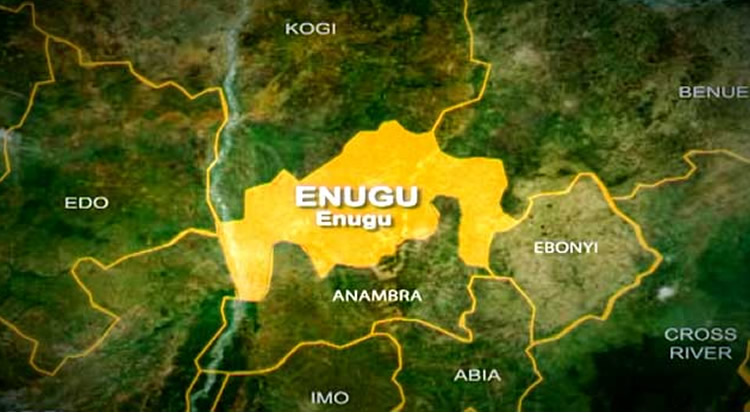The Enugu Farm Estates Programme is a groundbreaking initiative designed to revolutionize agriculture in Enugu State, Nigeria, and transform rural communities into vibrant economic centers. The program envisions a future where agriculture is not merely a means of subsistence but a thriving industry driving economic growth, job creation, and food security. Inspired by successful agricultural models in countries like Israel, Brazil, China, and Vietnam, Enugu State aims to increase its agricultural output by an ambitious 2,000% within the next decade. This initiative seeks to leverage the state’s rich agricultural resources to achieve a $30 billion GDP target, positioning Enugu as a model for sustainable agricultural development in the region.
The program adopts a holistic approach, fostering a sustainable agricultural ecosystem that goes beyond mere farming. Its core objectives encompass ensuring food security for the state, creating numerous employment opportunities, and stimulating rural economic development. The strategy is two-pronged: supporting large-scale commercial farming through a land bank system and empowering smallholder farmers through the establishment of farm estates. This dual approach aims to create a synergistic effect, where both large-scale agribusinesses and empowered smallholder farmers contribute significantly to the state’s agricultural output. The program emphasizes not only increased production but also the development of value chains for export and food processing, further enhancing the economic impact of the agricultural sector.
The Enugu State Land Bank, boasting over 130,000 hectares of available land, is a key component of attracting large-scale agricultural investments. This initiative aims to create public-private partnerships and promote modern, technology-driven farming practices. The farm estate model, the second prong of the strategy, rests on three pillars: sustainable agricultural practices, economic empowerment, and rural security and development. These pillars are designed to ensure environmental friendliness, create employment opportunities, improve farmers’ incomes, and transform underutilized land into thriving agricultural hubs, contributing to overall community stability and prosperity.
The farm estates are structured as cluster farms, with each estate spanning 200 hectares per ward. With 260 wards in Enugu State, the program envisions a total of 52,000 hectares of farmland under cultivation. This ambitious scale of development is projected to generate over 104,000 direct jobs and more than 156,000 indirect jobs. Each farm estate will be equipped with modern infrastructure, including central warehouses for aggregation and processing, tractor sheds for mechanized farming, resting sheds for farmers, perimeter fencing for security, irrigation systems for year-round farming, and well-constructed access roads for efficient transportation. These features are designed to transform farming from a subsistence activity into a highly organized, profitable, and sustainable enterprise.
Empowering local farmers is central to the success of the Enugu Farm Estates Programme. Each estate will accommodate 200 farmers, each allocated one hectare of land. These farmers will receive comprehensive training and extension services to enhance their knowledge of modern agricultural practices. They will also have access to quality inputs such as improved seeds and fertilizers, mechanized support including tractors and other farming equipment, and guaranteed market access through structured offtake arrangements. This comprehensive support system aims to remove the traditional barriers faced by smallholder farmers, allowing them to focus on maximizing their productivity.
Addressing market access challenges is another crucial aspect of the program. The Enugu State Marketing Company will play a vital role in coordinating the offtake and sale of agricultural commodities. This structured marketing approach will stabilize prices, prevent market exploitation, and provide farmers with a reliable income stream, encouraging increased production. By ensuring fair prices and income stability, the marketing company aims to reassure both farmers and investors, fostering confidence and long-term sustainability. The program’s funding structure involves a collaborative partnership between the state and local governments, with a 60/40 contribution split, respectively. This joint approach ensures effective resource mobilization, accountability, and shared responsibility.
Beyond its economic objectives, the Enugu Farm Estates Programme also addresses the critical issue of rural security. By creating employment opportunities, transforming uninhabited land into productive farming communities, and strengthening local economies, the program aims to reduce crime rates and make rural areas more attractive for investment and habitation. Addressing the root causes of insecurity—poverty and unemployment—is seen as a key to long-term rural stability and development. The anticipated outcomes of the program are far-reaching and transformative. These include a significant increase in Enugu’s GDP, a reduction in rural-urban migration, a lower poverty rate through job creation and financial inclusion, and a substantial leap towards food self-sufficiency, reducing reliance on food imports. The program represents a paradigm shift in the state’s approach to agriculture, positioning Enugu as a potential agricultural powerhouse and a model for other states to emulate.


